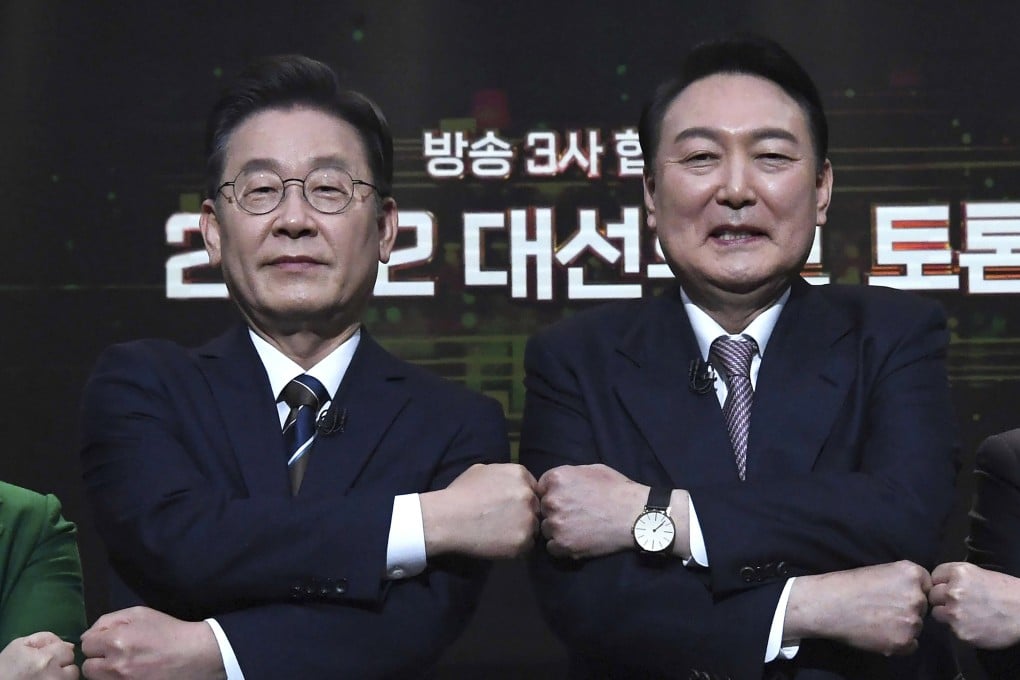Advertisement
South Korea’s China ties in focus as ‘watershed’ presidential elections loom
- Described by analysts as a ‘watershed’ moment for South Korea’s security and diplomacy, Wednesday’s polls will decide who succeeds President Moon Jae-in
- Few fundamental changes to Seoul’s China policy are expected no matter who wins – though growing anti-Chinese sentiment in the country will need to be addressed
Reading Time:5 minutes
Why you can trust SCMP
4

In the weeks leading up to the South Korean presidential elections, controversies surrounding the Winter Olympics in Beijing have dominated Chinese media headlines and internet discussions.
Many South Koreans were outraged by the sight of a woman dressed in hanbok, a form of traditional Korean dress, carrying a Chinese flag at the Olympics opening ceremony. They said it was Beijing’s latest attempt to claim aspects of Korean culture.
Anger again erupted after two South Korean short-track speed skaters were disqualified, allowing a pair of Chinese skaters to win gold and silver – prompting accusations that the judges were biased in favour of China.

In the days since, Chinese state media has given only scant coverage of the tightly contested race in one of its nearest neighbours. Last month, Xinhua reported that campaigning for the election had kicked off, citing a survey detailing the support for three of the major candidates. On Friday, it issued a short report stating that early voting for the election had begun.
But little else has been said about their individual platforms, and this reticence, according to Li Nan, an associate research fellow at the Chinese Academy of Social Sciences, is at least partly down to Chinese media being more focused on the Olympics and subsequent invasion of Ukraine by Russia.
It also stemmed from South Korean accusations that China was “interfering” in its elections, Li said.
In January, the Chinese embassy in Seoul denied allegations that its former ambassador had tried to meddle in the coming presidential election.
Advertisement